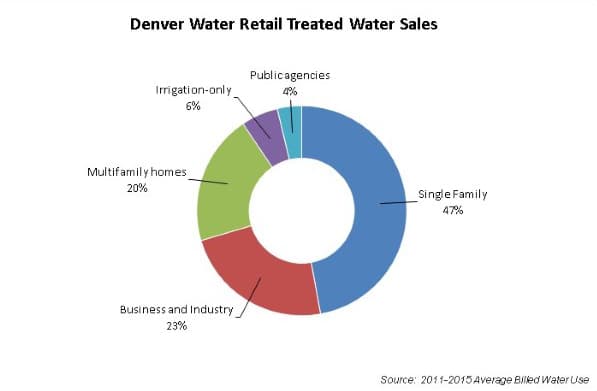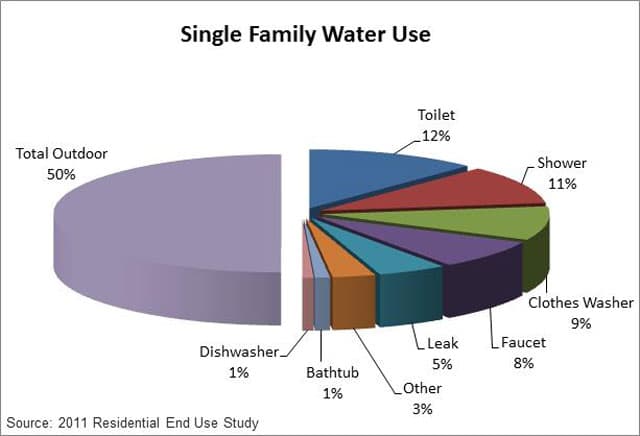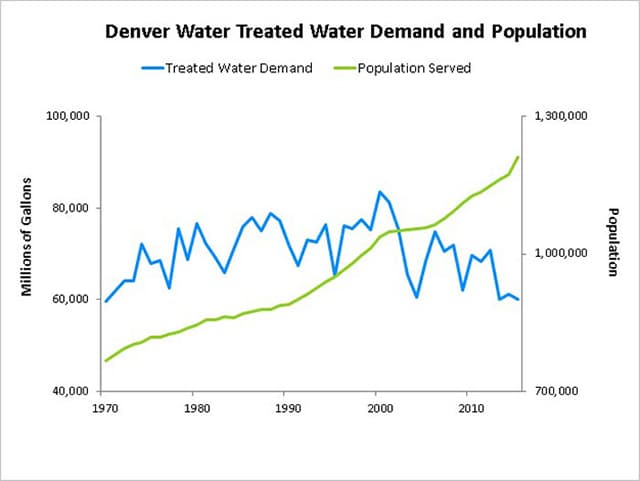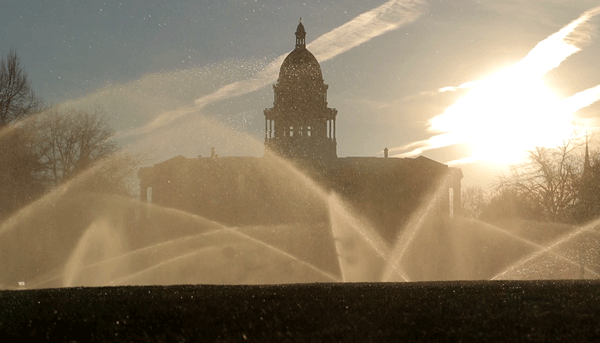On May 1, Denver Water's summertime guidelines kicked in for the season.
The rules, which are more best practices than requirements, are all about lawns. Don't use sprinklers between 10 a.m. and 6 p.m. - the summer heat will just evaporate most of it. Don't water the grass more than three times a week. Make sure sprinklers aren't watering concrete. Don't water the lawn when it's already raining.
Last year, in the heat of July, a sudden rainstorm swept over the city. Analysts at Denver Water noticed something: Water use dropped by about 120 million gallons per day. The reason, they concluded, was that people quit using their sprinklers because, you know, nature was doing it for them.
If you think that sounds like a lot, you're basically right. It depends what context we're talking about.
As far as the city's water use is concerned, Denver Water estimates lawn irrigation accounts for 50 percent of single-family homes' total use. Single-family homes use 47 percent of all the city's water sales, according to a 2011 study. If that's still true today, lawn watering uses nearly a quarter of every drop Denver Water sells to the city.


But this is less significant in a statewide context. Denver Water estimates the city drinks up less than two percent of Colorado's total water use every year. According to data from the Colorado Water Plan, which was signed by Gov. Hickenlooper in 2015, municipal water only accounts for 6.7 percent of the state's total use. Agriculture takes the lion's share at 86.7 percent.
Jose Salas, a spokesperson with Denver Water said, "yeah," 120 million gallons is a lot. But he added metro-area customers have done a pretty good job limiting their use. That, in addition to more efficient systems, has resulted in a drop in water demand even as population exploded.

Still, Denver Water hopes customers abide these grass-related guidelines.
"The smarter we can be with water now," Salas said, "the less impact it will have down the road when we need it the most."













